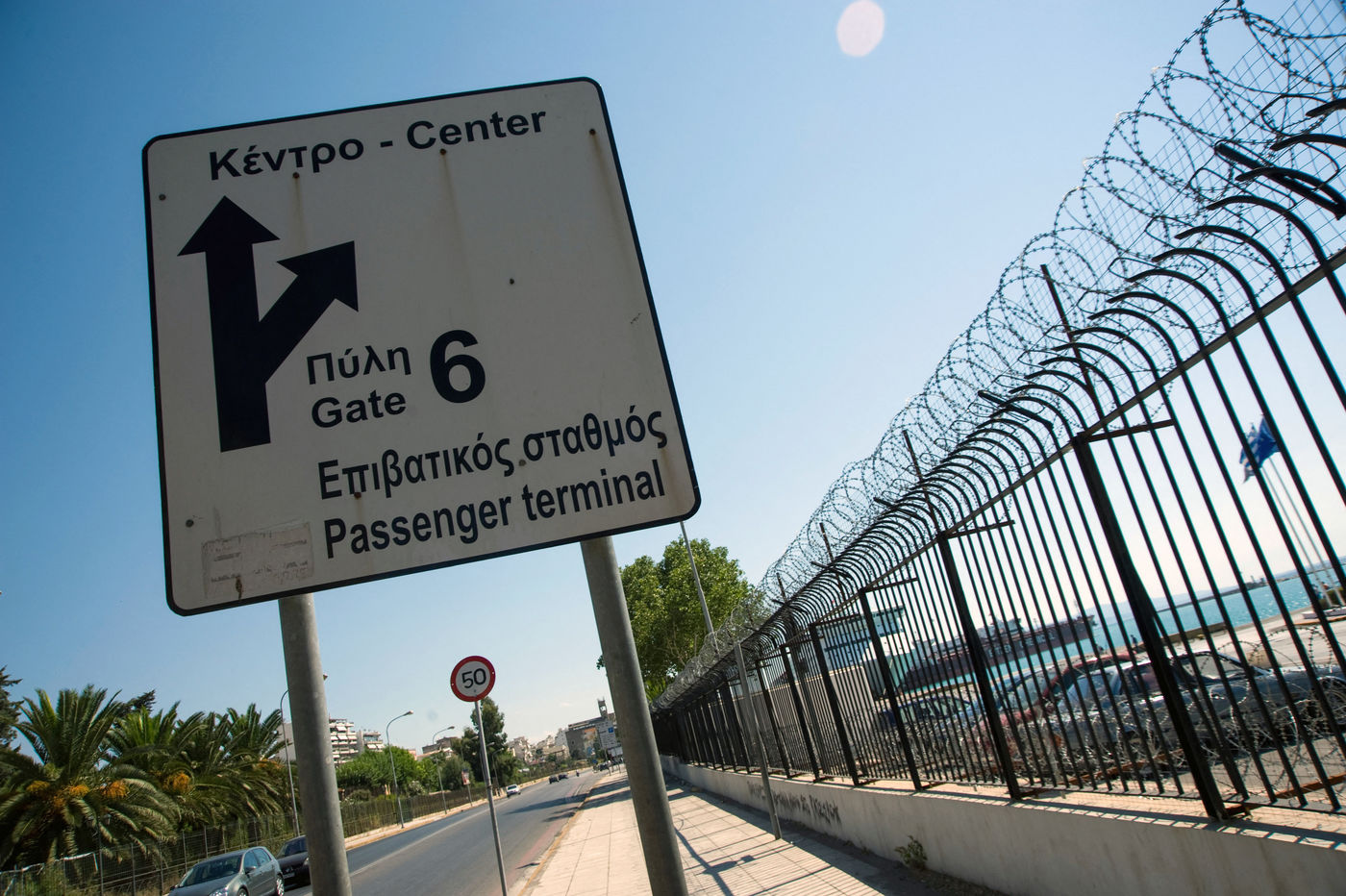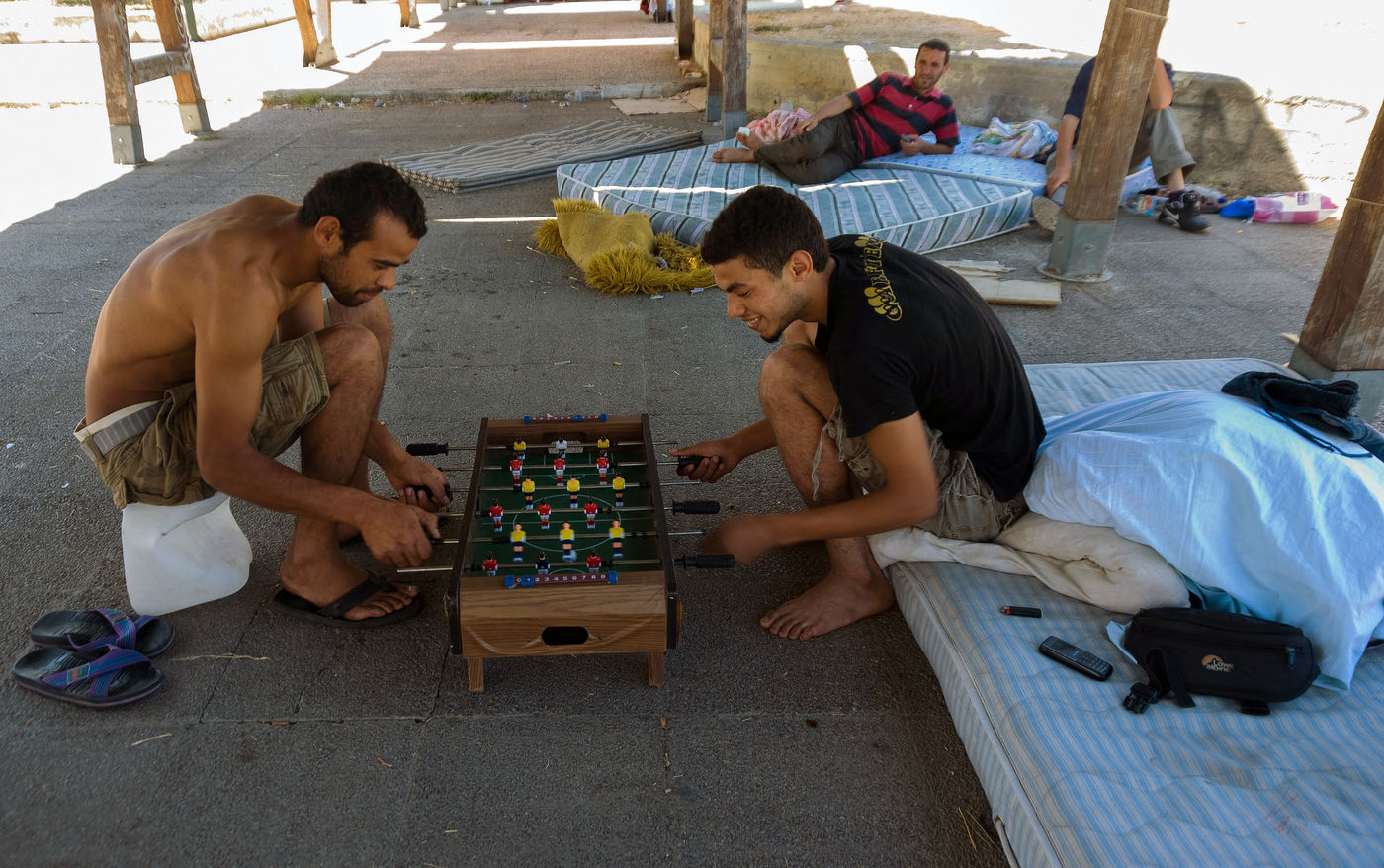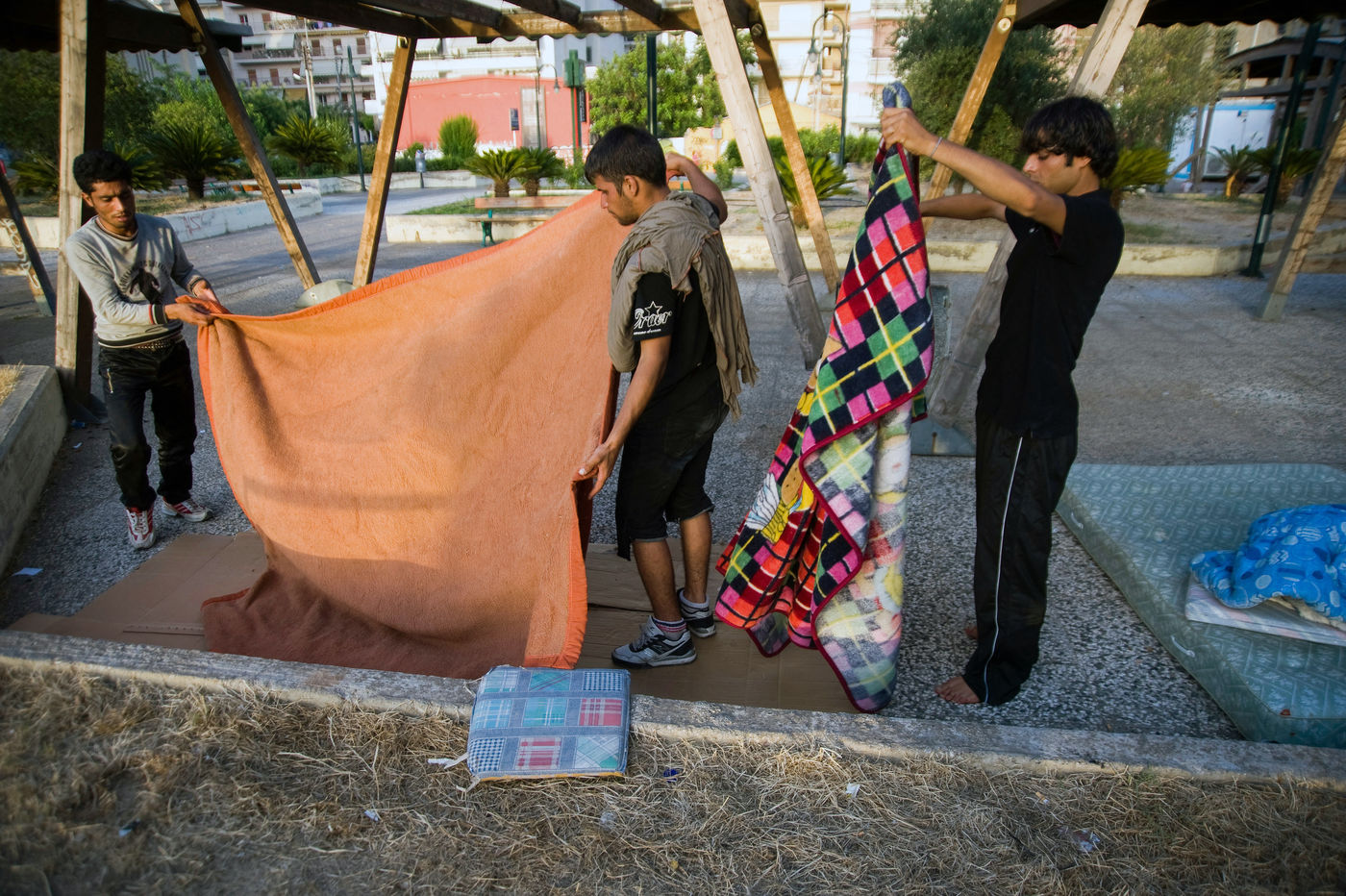Pour accéder à la série en entier, vous devez vous logger ou demander un compte Hans Lucas en cliquant ici.
Les réfugiés à Patra
Ils viennent de toutes les régions d'Afghanistan fuyant la guerre, la violence. Ils viennent du Pakistan où ils s'étaient exilés. En Europe, le règlement Dublin les oblige à demander l'asile dans le premier pays par lequel ils sont entrés.
Pour la plupart d'entre eux il s'agit de la Grèce.
État qui réserve aux afghans un traitement particulièrement dur les demandes de statut de réfugié sont accordées très peu. Ne voulant pas y retourner, ils errent. Patras, grand port de la Grèce occidentale, où transitent chaque jour de nombreux camions vers l'Italie, est devenu un haut lieu de l'immigration clandestine. Des centaines de migrants coincés à Patras. Ils dorment près du port. D'autres sous un vieux train ou encore dans des maisons abandonnées. La journée, un certain nombre d'entre eux cherche à s'introduire a l'intérieur du port et monter dans un ferry en partance pour l'Italie. Les africains (soudanais essentiellement) essaient à l'ouest, à l'extérieur du port, sous ou dans les camions qui entrent dans le port, alors qu'ils stoppent au feu. Les maghrébins (marocains, algériens et tunisiens) et les afghans au niveau de la gare ferroviaire. Chez tous on ressent un mélange de lassitude et d'espoir.
Refugees in Patra
They come from all parts of Afghanistan fleeing war and violence. They come from Pakistan, where they had gone into exile. In Europe, the Dublin regulation obliges them to apply for asylum in the first country they entered.
For most of them it is Greece.
As a state that treats Afghans particularly harshly, very few applications for refugee status are granted. Not wanting to return, they wander around. Patras, a large port in Western Greece, where many trucks pass through every day on their way to Italy, has become a Mecca for illegal immigration. Hundreds of migrants stuck in Patras. They sleep near the port. Others under an old train or in abandoned houses. During the day, a number of them try to break into the port and board a ferry bound for Italy. The Africans (mainly Sudanese) try to go west, outside the port, under or in the trucks entering the port, while they stop at the fire. Maghrebians (Moroccans, Algerians and Tunisians) and Afghans at the railway station. Everyone feels a mixture of weariness and hope.




